Last updated: February 28, 2020
Article
Subsistence: The Ethics of Taking
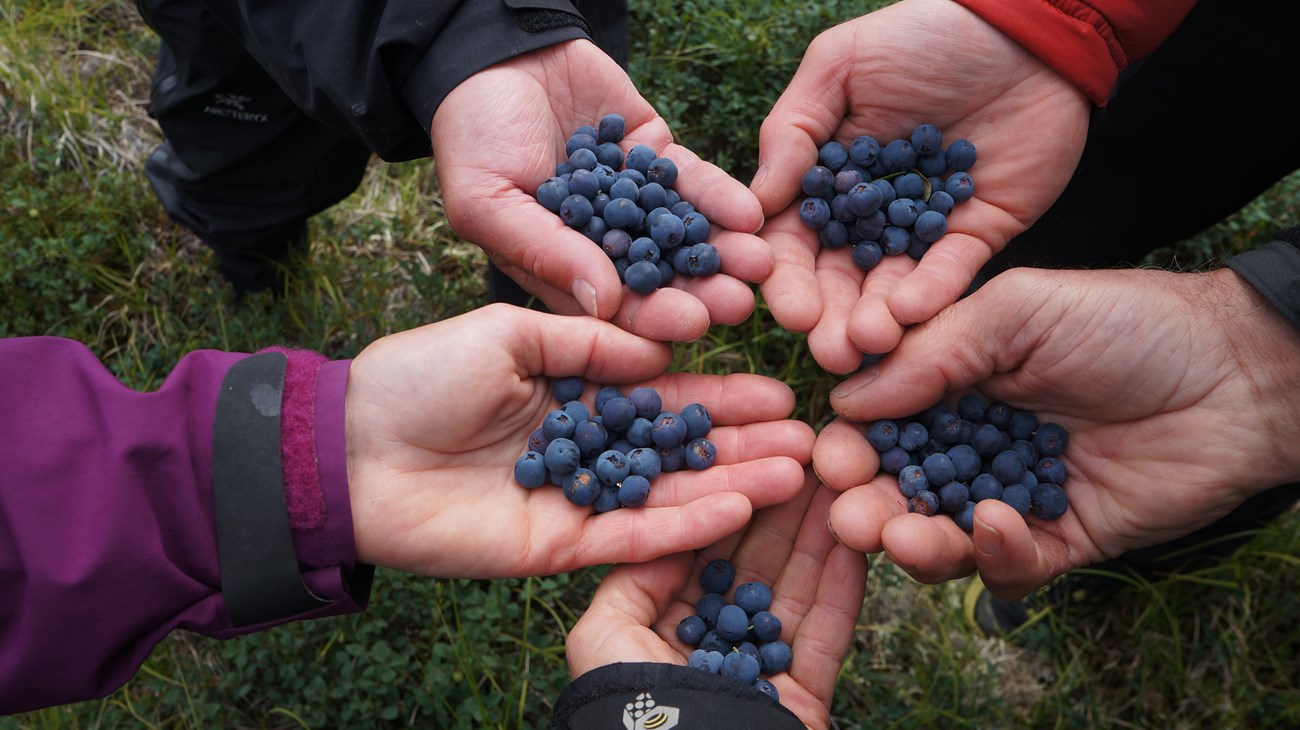
NPS/ B. King
Respect
Hunting, fishing, and the use of animal products acquired through traditional means, remain centerpieces of what it means to be inland Dena’ina today. Access to fish and game, and the knowledge to successfully acquire wild foods, is viewed as essential to Dena’ina food security and self-sufficiency. The cost of purchasing all food from outside the Lake Clark region is cost-prohibitive, and store-bought food is generally less healthy than foods from the land. Most understand that wild sources of meat provide more nutrients per pound than commercial substitutes such as beef—never mind cultural preferences for the flavors, textures, and other attributes of wild foods. In fact, elders have predicted, even prophesied, that a time will come when the flow of outside food and other goods will be interrupted by some sort of cataclysm, and the game—along with enduring hunting traditions—will save the people.
Asked what constitutes the core of traditional teaching regarding the hunt and other subsistence pursuits, elders consistently identified a core cultural concept: “respect.” The ways respect is manifested in the hunt and in the use of meat acquired through the hunt, is an underreported topic, but one seen by modern Dena’ina as essential to their continued survival. The rudiments of these values are outlined here, recognizing this is merely an introduction to a rich and multilayered system of belief and practice.
“When you might get some kind of animal, I like to give thanks to it because, especially like ducks and geese…. They flew a long, long way to be here and you know we’ve got to respect that. They flew a long ways just to be up here and we have a chance to get them. We can’t be disrespecting stuff that travels that far…and the moose…I mean every big game like moose or kill that I ever got…I always give thanks for it because you know, without it we wouldn’t have anything.” –Randy Kakaruk
Once an animal has been killed, hunters show respects in further ways. For example, modern subsistence harvesters continue to offer statements of thanks, even prayers, at hunting and fishing sites, to demonstrate respect for game and the Creator. As Randy Kararuk says, “when you do that you’re showing respect and that’s going to help—the elders say it helps bring the animals back…. If you respect them they will stay here."
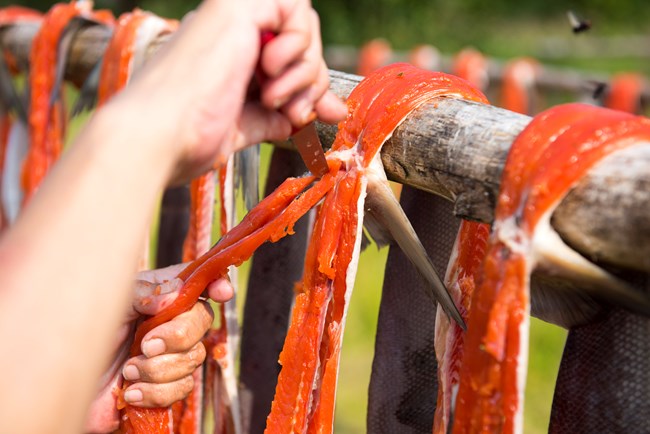
NPS/ D. Khalsa
Balance and Redistribution
Beyond obligations to game species, inland Dena’ina have interwoven, reciprocal obligations to each other—between households and generations—that serve to sustain both Dena’ina lands and society. It is widely reported that hunters must always “give some meat away” to family, to elderly or ill people in the community, and to others in need. This reflects general values concerning community responsibility for those who cannot help themselves.
“Even these younger guys are on there. They don’t go over and kill whatever they want. They kill what they see and bring it back and redistribute it to everybody…my kid, plus all his friends, they used to go with us, go with me out hunting. And we would say just take whatever you need.” –Gary Alexie
In order for the lands, resources, and culture of the Dena’ina world to survive, then, people must recognize and honor their obligations on many cultural ledgers—obligations to the elders and the rest of the community, obligations regarding food redistribution, obligations to the children and future generations with the sharing of resource knowledge and ethics, and obligations to the game through myriad demonstrations of respect. These cultural practices are fundamentally connected.
PDF, 124 pages (14.6 MB)
Read the Traditional Use Study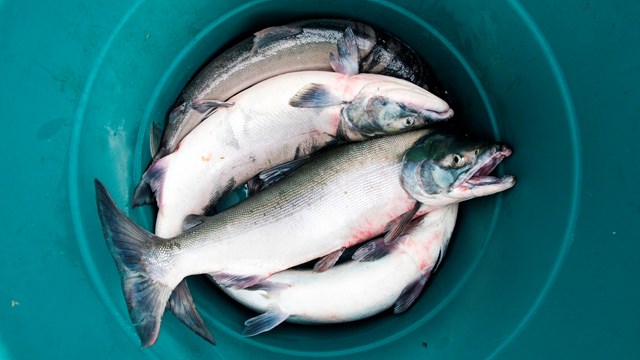
Explore the cultural tradition of fishing for salmon at fish camps.
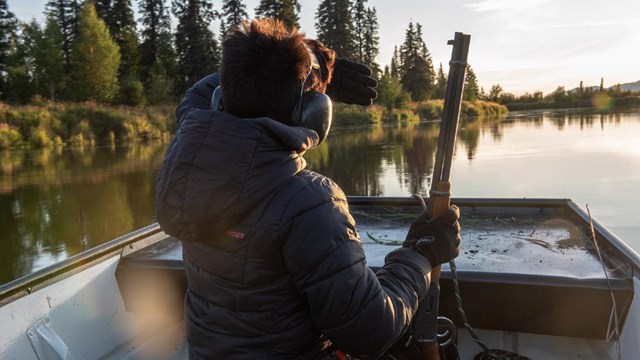
Scope out more on the traditional hunting and trapping methods of inland Dena'ina people.
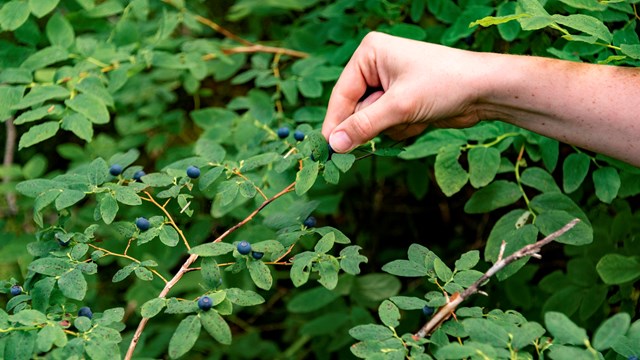
Harvest more knowledge on traditional uses of local plants.
